JOB
JOB
A NEW TRANSLATION EDWARD L. GREENSTEIN

Published with assistance from the Louis Stern Memorial Fund. Copyright 2019 by Yale University. All rights reserved. This book may not be reproduced, in whole or in part, including illustrations,
in any form (beyond that copying permitted by Sections 107 and 108 of the
U.S. Copyright Law and except by reviewers for the public press),
without written permission from the publishers.
Yale University Press books may be purchased in quantity for educational,
business, or promotional use. For information, please e-mail
(U.S. office) or (U.K. office). Designed by Mary Valencia. Set in Minion type by Integrated Publishing Solutions,
Grand Rapids, Michigan.
Printed in the United States of America. Library of Congress Control Number: 2019932366 ISBN 978-0-300-16234-9 (hardcover : alk. paper) A catalogue record for this book is available from the British Library. This paper meets the requirements of ANSI/NISO Z39.48-1992
(Permanence of Paper). 10 9 8 7 6 5 4 3 2 1 A human, born of woman,
Is short of days and sated with restlessness.
He sprouts like a flower and withers.
He flees like a shadow and does not stay. Job 14:12 This work is dedicated to the memory of my students
who passed on well before their time.
Thomas Lichtman
Ran Zohar
Matthew Eisenfeld
Seth Brody
Richard Thaler
Zvia Ginor
Cynthia Culpeper
Alan Lew
Daniel Wagner
Joel Wasser
Ellen Singer
Rami Wernick
Yaakov Thompson
Thea Friedman
Evan Jaffe
Ilana SassonWhom the gods love dies young. ancient Greek epigram
Contents
JOB
Preface
I often begin a course or lecture on the biblical book of Job with a well-known quip: in the book of Psalms there is no connection between one chapter and the next; in the book of Proverbs there is no connection between one verse and the next; in the book of Job there is no connection between one word and the next. Although there is not a little whimsy in the last assertion, there inheres in it a certain grain of truth.
The Hebrew of Job, with its eccentric idiom and often inscrutable text, poses an extraordinary challenge to the scholar of difficult language, the philologist, the lover of words. For over a half a century I have been honing my skills as an interpreter of biblical and other ancient Semitic languages and literatures, publishing academic studies and brief commentary on the book of Job. With the publication of this annotated translation, I share with the reader a fresh reading of the text, drawing on decades of research and close study. My understanding often differs from current translations and commentaries on some of the larger questions and on many details. Although this translation is far from a full commentary, in the accompanying notes I seek, on the one hand, to explicate certain expressions and images and, on the other, to justify the philological choices and suggestions I have made. I have attempted to find an explanation for every word, phrase, and syntactic construction.
With all due modesty, I believe this is more than most other translators can claim. Such work requires tremendous patience and effort. The most fundamental principle I have learned and adopted from my best teachers is that ancient texts at one time made good sense. My foremost aim in writing this translation is to make good sense of the text of Job, with all the limitations that are entailed. I have tried to achieve this goal while at the same time trying to reproduce in some form many of the poetic tropes that characterize the work. My interest in the issues of the book of Job harks back to my freshman year in college, when I was caught up in the problem of evilhow can a good God allow innocent suffering?during a course on the philosophy of religion.
My fascination with the linguistic and poetic intricacies of the Hebrew text of Job began with an intense and in-depth yearlong course on that book at the Jewish Theological Seminary in New York with Professor H. L. Ginsberg, of blessed memory, who sought to work out every philological and interpretative problem in this most difficult of biblical texts. Ginsbergs class notes, some of which I could fully understand only years later, formed the foundation of my own investigations into Job. When a small fire broke out on the roof of my house some time ago, the first possession I took pains to remove was my notebook containing Ginsbergs insights and the many annotations I had added since taking his class in 197273. Several of what I regard as my best contributions to the interpretation of the language and discourse of Job I owe to Professor Ginsbergs genius.
Having taught the book of Job in one form or another for over four decades and having presented papers and lectures on Job at numerous conferences and in other academic venues, I am very beholden to many students and colleagues, who have provided me with ideas, feedback, and materials. I can hardly remember, much less thank, them all. I would nevertheless like to express special appreciation to Professors Michael V. Fox, Ellen van Wolde, Konrad Schmid, Leong Seow, Carol Newsom, Marc Z. Brettler, Adele Berlin, Steven Weitzman, Alexander Rof, Peter Machinist, Mordecai A. Friedman, Noam Mizrahi, Scott Jones, Ken Brown, Andr Lemaire; and to Dr.
Uri Melammed, Dr. Takayoshi Oshima, Dr. Jeremy Pfeffer, and Dr. Nissim Amzalleg. My research on Job has enjoyed support from the Abbell Research Fund of the Jewish Theological Seminary, Beit Shalom Japan, the Herzl Institute, and Bar-Ilan University. I have benefited from the research assistance of several former doctoral students and, especially in connection with Job, from Dr.
Dominick Hernandez and Dr. Adi Marili. My student Kristina Toshkina has afforded me the benefit of her expertise in Arabic. For some technical assistance I am grateful to Ben Bokser. My endeavors in biblical translation have been inspired by the exemplary work of Professor Everett Fox, the preeminent translator of Biblical Hebrew prose. For several years I assisted Everett as a first reader and consultant; I hope he will appreciate that some of his method and sensitivity has rubbed off on me for the better.
I am grateful, too, to Professor Mark J. Mirsky, who in 1990 commissioned and published in Fiction magazine my translation of the book of Esther. His constant encouragement has meant much. I am extremely grateful to Yale University Press for accepting my proposal to publish a new and different translation of Job. It was Professor Ivan G. Marcus who, having heard a series of lectures he arranged for me at Yale in 2008, brought my project to the attention of Jonathan Brent, at that time the editorial director.
Since then it has been Jennifer Banks who has shown interest, encouragement, and exceeding patience in awaiting and receiving my manuscript. I thank her and her assistant, Heather Gold, as well as the production editor, Susan Laity, for seeing this book through the press. Lawrence Kenney has been a wonderful copyeditor. I am also grateful to the readers to whom the Press assigned my manuscript for their very helpful observations. My wish is that this new translation will make a difference in the way the inspired and inspiring book of Job is read.
A Note on the Transcription of Hebrew and Other Semitic Languages
Two broad audiences are anticipated for this work.
A Note on the Transcription of Hebrew and Other Semitic Languages
Two broad audiences are anticipated for this work.
One is a general audience, for whom technical aspects of transcribing Hebrew and other Semitic languages are of limited importance. The other is an audience with a great interest in information about Hebrew and other foreign words that are adduced for purposes of explanation and justification. I have therefore chosen a middle path: sufficient information is provided to the specialist, while keeping the transcription on a nontechnical level amenable to the general reader. Such a reader may be interested in transcriptions in order to see how similar one word is to another, for example, in puns and assonance, or in assessing the plausibility of an emendation (a reading of a different word from the one in the received text, assumed to have been corrupted by scribal error or illegibility in the course of its transmission). The specialist will want to examine all suggestions of readings that differ from the traditional Hebrew text; evaluate proposed cognates from other Semitic languages; and compare terms and phrases in related passages. A minimally accurate transcription, one that does not distinguish similar-sounding consonants, such as
Next page


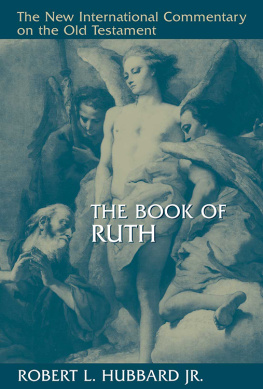

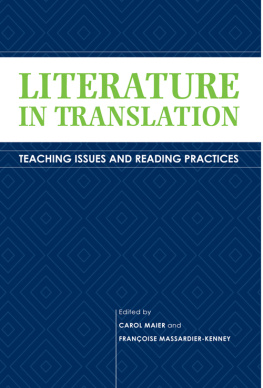
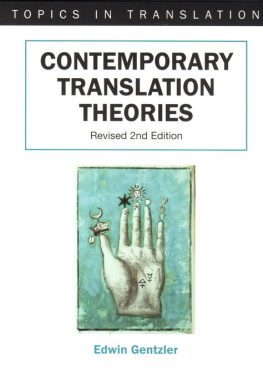
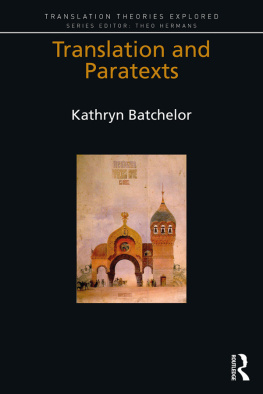

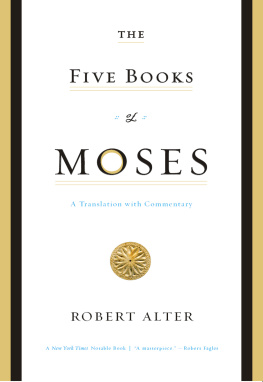

 Published with assistance from the Louis Stern Memorial Fund. Copyright 2019 by Yale University. All rights reserved. This book may not be reproduced, in whole or in part, including illustrations,
Published with assistance from the Louis Stern Memorial Fund. Copyright 2019 by Yale University. All rights reserved. This book may not be reproduced, in whole or in part, including illustrations,